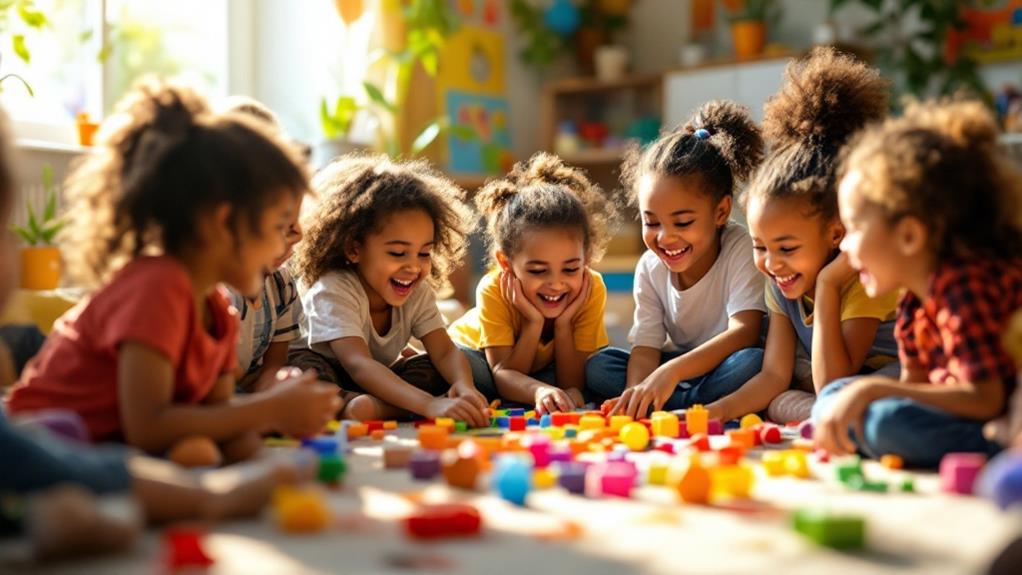Social skills groups create a safe space where your child can build essential friendships through guided activities. Here, they practice communication, resolve conflicts, and learn to express feelings. The small group setting encourages collaboration and teamwork through games, art projects, and role-playing, helping them navigate social cues and anxiety. Facilitators foster trust and support while providing feedback, enhancing your child's confidence. As they engage with peers, they share experiences that result in lasting connections and positive self-esteem. If you're curious about how these interactions can transform your child's social life, there are more insights waiting for you.
Key Takeaways: Insights on Building Children's Social Skills
- Social skills groups provide a safe space for children to practice communication and teamwork, essential for building friendships.
- Interactive activities like games and art projects promote collaboration, fostering connections among participants.
- Role-playing scenarios help children understand social cues and navigate complex interactions effectively.
- Regular feedback from facilitators encourages personal growth and reinforces positive social behaviors.
- Group settings enhance self-esteem and confidence, enabling children to engage more readily with peers outside of sessions.
Importance of Social Skills
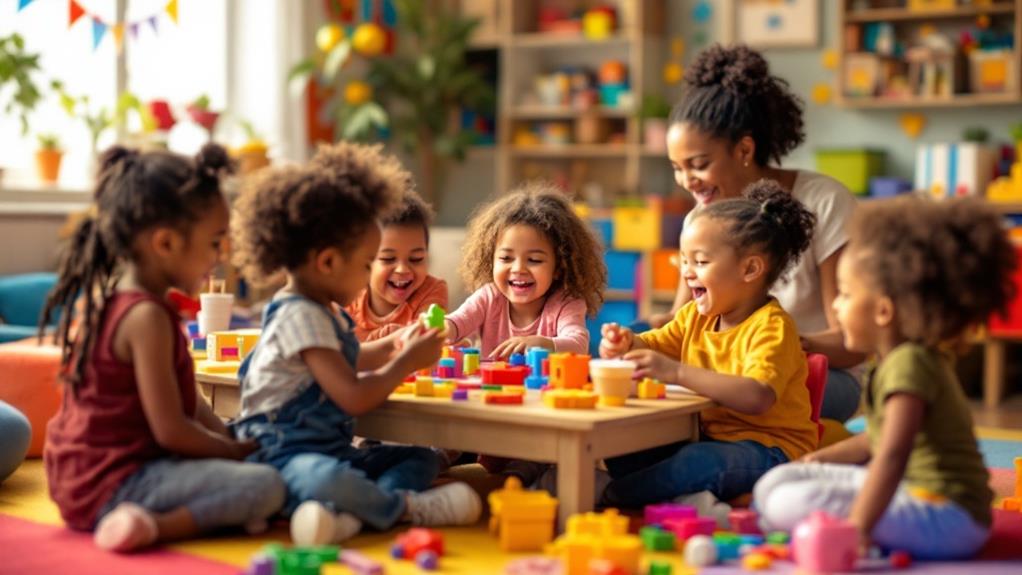
Social skills are like the glue that holds our interactions together, shaping how we connect with others. They're essential for building friendships, resolving conflicts, and fostering empathy.
When children develop strong social skills, they're not just learning how to communicate; they're learning how to navigate the complexities of relationships.
Think about it: when a child can express their feelings, listen actively, and understand social cues, they're more likely to form meaningful connections. These skills help them engage in group activities, share and cooperate, which are vital for both personal and academic success.
You might notice that children with well-honed social skills often experience less anxiety in social situations. They feel more confident in initiating conversations or joining games, which ultimately leads to fulfilling friendships.
Structure of Social Skills Groups
When it comes to fostering social skills, structured groups can provide a supportive environment where children can practice and enhance their abilities. These groups typically consist of a small number of participants, allowing for personalized attention and interaction.
You'll find that skilled facilitators guide the sessions, creating a safe space for children to express themselves and engage with peers. The structure usually includes a mix of activities, discussions, and role-playing exercises. This variety keeps children engaged while helping them learn essential social cues, such as taking turns and active listening.
Sessions often begin with icebreakers to ease any anxiety and build rapport among participants. As trust develops, children feel more comfortable sharing their thoughts and feelings.
Moreover, regular feedback from facilitators helps kids understand their strengths and areas for improvement. Parents and caregivers are often encouraged to be involved, reinforcing the lessons learned in group settings.
Activities That Foster Friendships
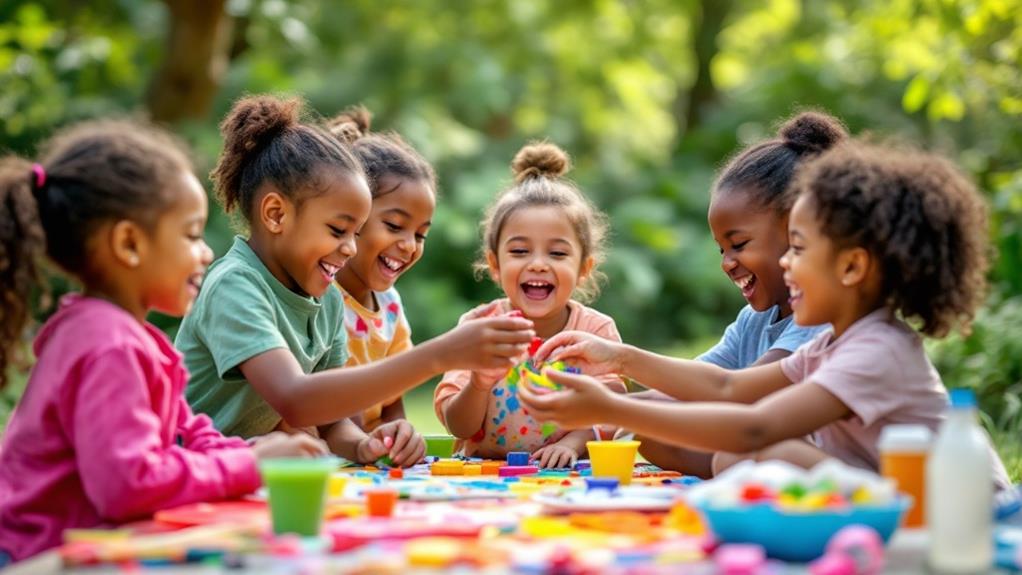
Building friendships often starts with shared experiences, and engaging activities can be a powerful way to foster those connections among children.
Think about incorporating fun, interactive games that encourage teamwork, such as relay races or scavenger hunts. These activities not only promote physical engagement but also spark laughter and cooperation, creating lasting memories.
Art projects can also be a fantastic way to build connections. When children work together on a mural or a craft, they learn to share ideas and respect different perspectives, fostering a sense of belonging.
Cooking together is another great option; preparing a simple recipe encourages communication and teamwork while satisfying their taste buds.
You might also consider role-playing scenarios that help children navigate social situations. This can lead to discussions about feelings, empathy, and shared experiences, deepening their understanding of one another.
Role of Facilitators
Facilitators play an essential role in guiding social skills groups for children. They're not just leaders; they're mentors who create a safe and supportive environment where kids can learn and grow. You'll notice how their presence fosters trust and encourages openness among group members. By setting clear expectations and modeling positive behaviors, facilitators help children understand the importance of communication and cooperation.
A skilled facilitator observes interactions closely, stepping in when needed to guide discussions or redirect negative behaviors. Their ability to recognize each child's unique strengths and challenges allows them to tailor activities that promote engagement and participation.
When conflicts arise, facilitators mediate disputes, teaching kids how to resolve differences constructively. Moreover, facilitators encourage peer interactions through structured activities, allowing children to practice social skills in real-time.
They provide constructive feedback, helping kids reflect on their experiences and improve their interactions. By celebrating small victories and offering gentle reminders, facilitators foster a growth mindset, empowering kids to persevere in building friendships.
Ultimately, their commitment to nurturing social development makes a lasting impact on children's lives, equipping them with essential tools for meaningful relationships.
Benefits of Group Interaction
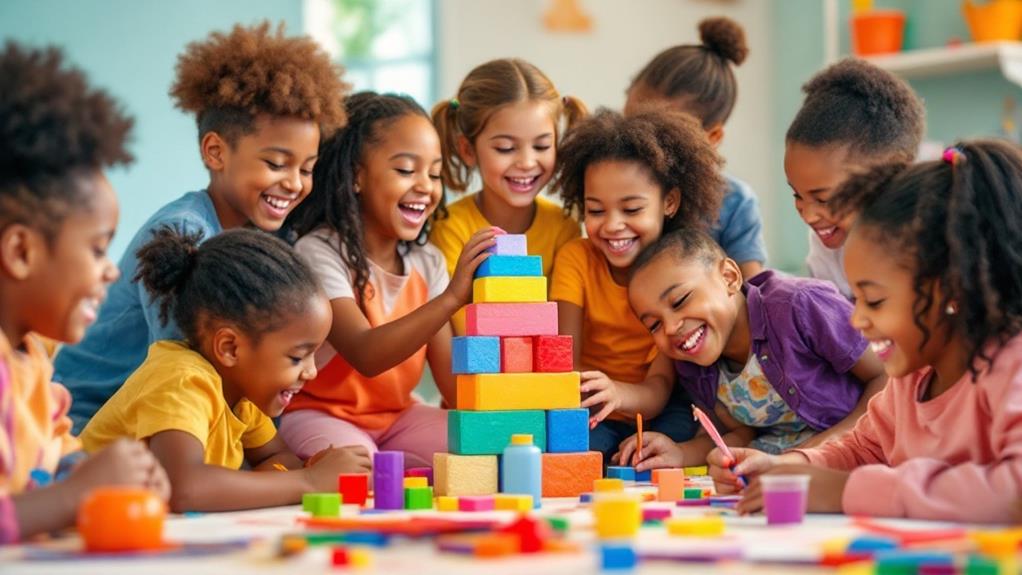
Engaging in group interactions offers children invaluable opportunities to develop essential social skills. When kids collaborate and communicate with their peers, they not only learn how to express themselves but also how to listen and empathize.
These experiences build a foundation for meaningful relationships and self-confidence, both vital for maneuvering life's social landscapes.
Here are some key benefits of group interaction:
- Enhanced Communication: Kids practice verbal and non-verbal cues, helping them express thoughts clearly.
- Conflict Resolution: They learn to manage disagreements, fostering patience and understanding.
- Teamwork Skills: Group settings teach collaboration, preparing them for future group projects or team sports.
- Increased Self-Esteem: Positive interactions with peers boost their confidence, empowering them to engage more.
- Broader Perspectives: Interacting with diverse individuals exposes them to different viewpoints, enriching their understanding of the world.
Parent Involvement and Support
Active parent involvement can considerably enhance a child's experience in social skills groups. When you engage in this process, you're not only supporting your child but also fostering an environment where they can thrive.
Start by communicating with the group leaders. Share insights about your child's strengths and challenges. This helps tailor the sessions to meet their specific needs.
Encouraging your child to express their feelings about the group can also be invaluable. Ask them what they enjoy and what makes them anxious. This dialogue builds trust and allows you to address any concerns proactively.
Additionally, consider participating in group activities when appropriate. Your presence can boost your child's confidence and help them feel more secure in social settings.
Don't forget to celebrate small victories! Acknowledge your child's efforts and progress, no matter how minor they seem. This affirmation reinforces their self-esteem and encourages them to keep trying.
Success Stories and Testimonials
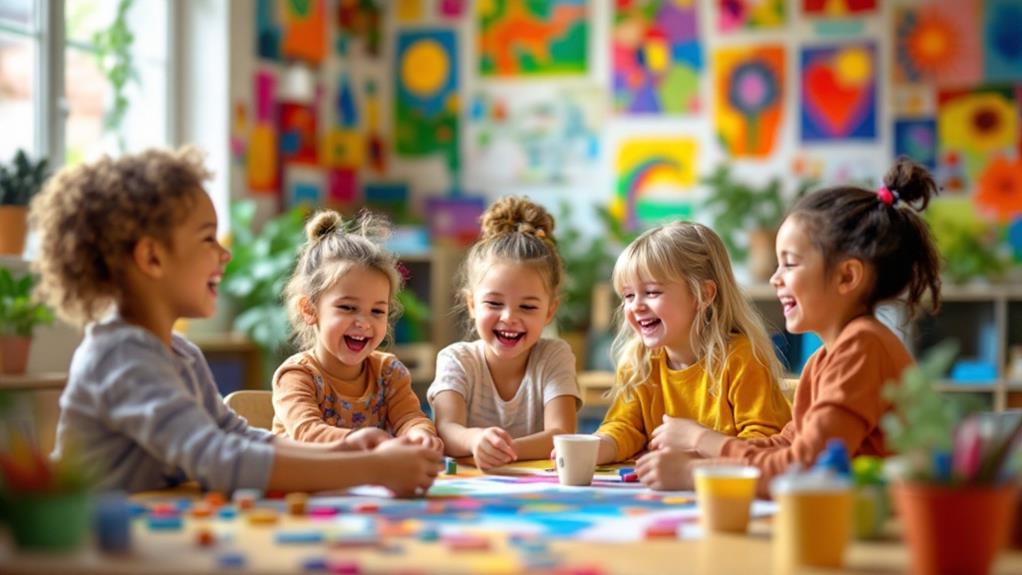
Over the past few years, many parents have shared inspiring success stories about their children's growth in social skills groups. These testimonials highlight the transformative impact these sessions can have on young lives, fostering not just skills but lasting friendships.
When you hear these stories, you can't help but feel a sense of hope for every child involved.
- A shy child who now initiates conversations with peers.
- A once-isolated kid who confidently joined a sports team.
- A child who learned to express feelings and resolve conflicts.
- A parent who witnessed their child's first-ever playdate.
- A group of friends formed that continues to meet outside of sessions.
These experiences are proof that social skills groups offer more than just lessons; they create a nurturing environment where children can thrive.
As you consider enrolling your child, remember that these groups foster not only social abilities but also a sense of belonging. Your support can help unleash their potential, guiding them toward meaningful connections and friendships that last a lifetime.
Isn't it heartwarming to think about the possibilities?
Conclusion
To summarize, social skills groups empower children to connect, communicate, and collaborate. By engaging in structured activities, they learn the art of friendship through shared experiences, guided support, and real-world practice. With the right facilitators and active parent involvement, these groups transform shy interactions into meaningful bonds. When children feel confident in their social abilities, they're not just making friends—they're building a foundation for lifelong relationships. Let's nurture these connections and watch them thrive!

